SpaceX and ULA win billions in Pentagon rocket contracts, beating out Blue Origin, Northrop Grumman
Hello readers!
A very important news about SpaceX and ULA was announced last august, 7. The two giants of the space launch market got a very important reiforcement to their budgets for the nexts years (2022 - 2027), by the winning of a billionaire contract of the Department of Defense.
This contact represents for ULA the opportunity to continuing the investments on its new launch vehicle, the Vulcan (Vulcan Launch System).
For SpaceX it represents an extra breathe to the development of the disruptive system Starship + Super-heavy.
The winners defeated Northrop Grumman and Blue Origin dispute and will jointly split $ 1 billion per year from DoD, SpaceX (40%) and ULA (60%).
See more details bellow in the original CNBC article.
Rui Botelho
SpaceX and ULA win billions in Pentagon rocket contracts, beating out Blue Origin, Northrop Grumman
PUBLISHED FRI, AUG 7 20205:10 PM EDT UPDATED FRI, AUG 7 20206:38 PM EDT
Michael Sheetz @THESHEETZTWEETZ
CNBC
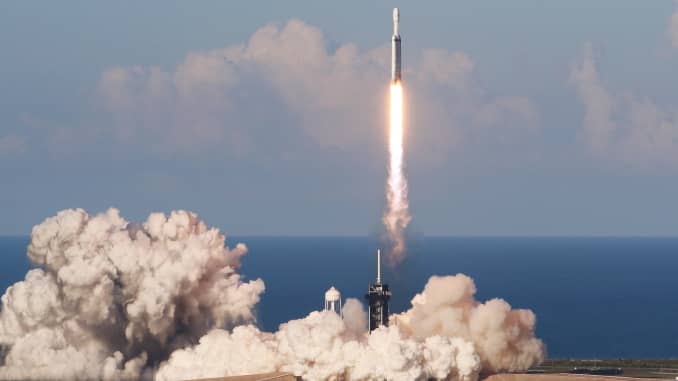 |
A SpaceX Falcon Heavy rocket, carrying the Arabsat 6A communications satellite, lifts off from the Kennedy Space Center in Cape Canaveral, Florida, April 11, 2019. Joe Skipper | Reuters |
KEY POINTS
- The U.S. Air Force on Friday awarded rocket builders United Launch Alliance and Elon Musk’s SpaceX contracts worth billions to launch national security missions.
- ULA, which won 60% of the launches, and SpaceX, which won the remaining 40%, beat out Northrop Grumman and Jeff Bezos’ Blue Origin.
- The military has said it expects to spend about $1 billion per year on launches.
The U.S. Air Force on Friday awarded rocket builders United Launch Alliance and SpaceX contracts worth billions to launch national security missions for five years starting in 2022.
The awards represent the second phase of the military’s National Security Space Launch program, which is organized by the Air Force’s Space and Missile Systems Center in Los Angeles, California. Four companies — Elon Musk’s SpaceX, ULA, Northrop Grumman and Jeff Bezos’ Blue Origin — bid for the contracts, with the military set to spend about $1 billion per year on launches.
The NSSL awards represent nearly three dozen launches, scheduled between 2022 and 2026. ULA won 60% of the launches, and SpaceX won the remaining 40%.
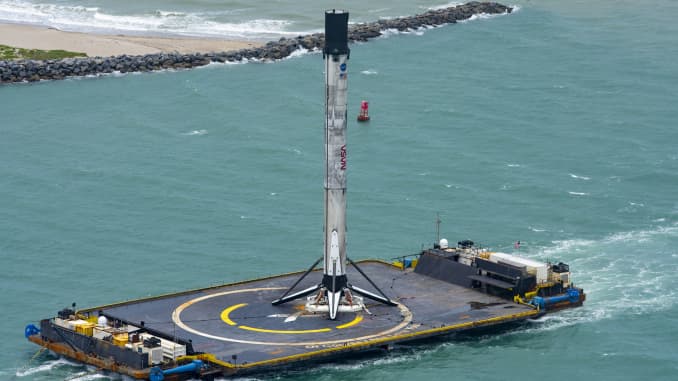 |
The landed Falcon 9 rocket booster from SpaceX’s Demo-2 crewed mission returns to Port Canaveral in Florida. SpaceX |
ULA, a joint venture of Boeing and Lockheed Martin, and SpaceX are the reigning launch providers for national security missions, having launched dozens of payloads for the military over the last decade. National security missions are the most lucrative in the rocket business, with many worth well over $100 million per launch. The U.S. military awarded ULA and SpaceX over $12 billion worth of launch contracts between 2012 and 2019.
Two years ago the Air Force gave ULA, Northrop Grumman and Blue Origin development contract awards worth $967 million, $792 million and $500 million, respectively. The process has been highly competitive, with SpaceX suing the Air Force after not winning a development award and Blue Origin protesting the criteria the Pentagon used for the launch contracts.
Each of the companies has been developing next-generation rockets, with the NSSL contracts a top priority. SpaceX has a fleet of Falcon 9 and Falcon Heavy rockets and is currently testing its massive Starship rocket. ULA is building its Vulcan rocket to replace its aging Atlas and Delta fleet of rockets as well as to end dependence on Russian-built rocket engines. ULA’s Atlas V rocket is powered by RD-180 engines, which are bought from Russia.
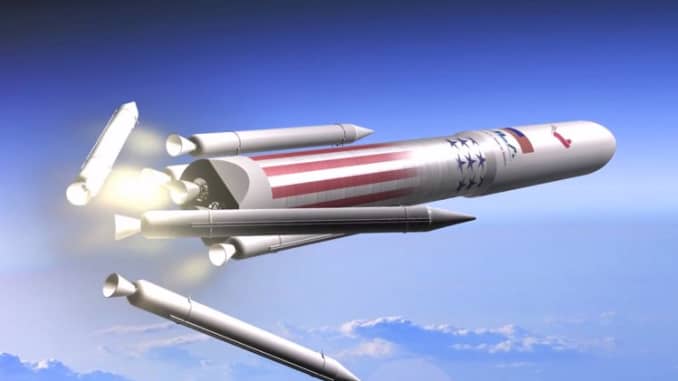 |
Artist rendering of United Launch Alliance’s Vulcan system. United Launch Alliance Source: https://www.cnbc.com/2020/08/07/spacex-and-ula-win-2022-pentagon-rocket-launch-contracts.html |
Northrop Grumman has been developing its OmegA rocket and has been focused largely on winning the Air Force contracts. While the company has said it expects OmegA could serve markets beyond just the military, losing out on the awards puts in doubt whether Northrop Grumman continues development.
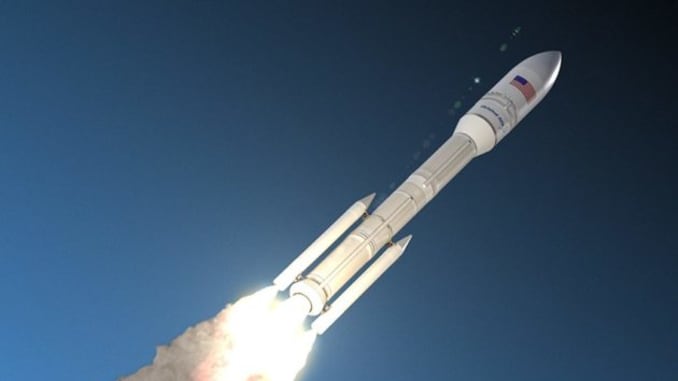 |
A rendering of Orbital ATK’s OmegA rocket. Orbital ATK |
Blue Origin will likely continue to build its New Glenn rocket despite losing out on the award, given the other projects Bezos’ company is working on. New Glenn is designed to be reusable in a manner similar to the way SpaceX lands its rockets, with the booster returning after each mission. Blue Origin CEO Bob Smith last year told CNBC that the company would continue New Glenn’s development regardless of whether it won NSSL launch contracts.
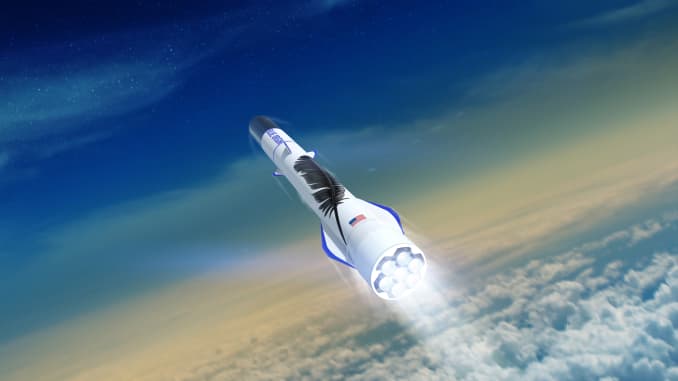 |
Artist rendering of Blue Origin’s New Glenn rocket. Blue Origin |
Comentários
Postar um comentário